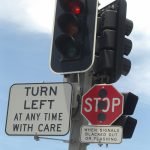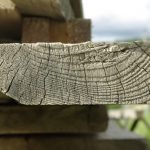In construction accident cases, the defendants are often in possession of information the plaintiff may need to prove his or her case. In New York litigation, there is to be “full disclosure of all matter material and necessary in the prosecution or defense of an action” by a party. CPLR § 3101(a). Among the discovery devices available are interrogatories and demands for discovery and inspection of documents or property. CPLR § 3102(a). Sometimes a party does not want to produce the requested documentation or property. If a party wishes to object to the disclosure, that party must make the objection within 20 days of service of the notice. CPLR § 3122(a)(1). The party may also move for a protective order under CPLR § 3103.
 In McDougal v. WWP Office, LLC, the defendants moved for a protective order from the plaintiff’s notice of discovery and inspection. The plaintiffs cross-moved to strike the defendants’ answer or alternatively to compel the defendants to produce the requested documents.
In McDougal v. WWP Office, LLC, the defendants moved for a protective order from the plaintiff’s notice of discovery and inspection. The plaintiffs cross-moved to strike the defendants’ answer or alternatively to compel the defendants to produce the requested documents.
The plaintiff was performing construction work at the site when the ceiling struck him. The plaintiff was employed by a non-party. He filed negligence and Labor Law claims against the building owner, the building occupier, and a construction company hired by the occupier.
The plaintiff argued that the defendants had waived their objections to the discovery requests by moving for a protective order rather than objecting within 20 days. The court noted, however, that case law has held that CPLR 3122(a) does not preclude a party from moving for a protective order upon receiving an overly broad discovery request.
The court pointed out that the purpose of such protective orders is to prevent abuse, so they should only be used in “extreme situations.” The court, however, has broad discretion to deny a discovery request that is overly broad or seeks irrelevant information. New York courts balance the request with the consequences of disclosure under a “usefulness and reason” test.
The court looked specifically at the discovery demands related to the repair of the ceiling. The defendants argued that such information was not subject to disclosure because it was related to subsequent remedial measures. A plaintiff in a negligence case is not generally entitled to discovery of subsequent remedial measures, but there are some exceptions. Such information may be discoverable when it shows the “nature and existence of a dangerous condition.” The court found the requested information could provide relevant information as to the cause of the ceiling’s collapse.
The defendants also argued that the plaintiff was not entitled to discovery related to the cause of the collapse because there was no risk related to elevation under Labor Law § 240(1). The court found that additional discovery was needed to determine the applicability of Labor Law § 240(1).
The court then addressed the specific requests, generally requiring the defendants to respond, although limiting the extent of some of the requests. The court did find that requests for the cell phone records of a particular person from the date of the accident to the date the ceiling was properly constructed and for the cell phone records of any of one of the defendants’ supervisory personnel involved in finding the cause of the collapse and ensuring proper construction for the same period were overly broad.
In construction accident cases, the defendants are likely to be in possession of records related to the work being performed, prior maintenance and construction of the structure, and any subsequent repairs that may show the nature of any defects that may have caused the accident. While the court may limit requests it finds to be overly broad, unduly burdensome, or seeking irrelevant or immaterial information, the plaintiff generally has a right to information and documents “material and necessary” to pursue the case.
New York construction accident attorney Nicolas Rose understands New York discovery law. We know which requests to make to get the information needed in a construction accident case. If you have been injured at an unsafe construction site, call us today.
The Law Offices of Nicholas Rose, PLLC offers free consultations. Call 1-877-313-7673.
Additional Resources:
McDougal v. WWP Office, LLC, August 4, 2016, Supreme Court of the State of New York, New York County
More Blog Entries:
New York Court Denies Defense Summary Judgment Motion Supported Only by Unsigned and Uncertified Depositions, April 15, 2016, New York City Injury Lawyer Blog
Image: FreeImages.com / Jason Smith






